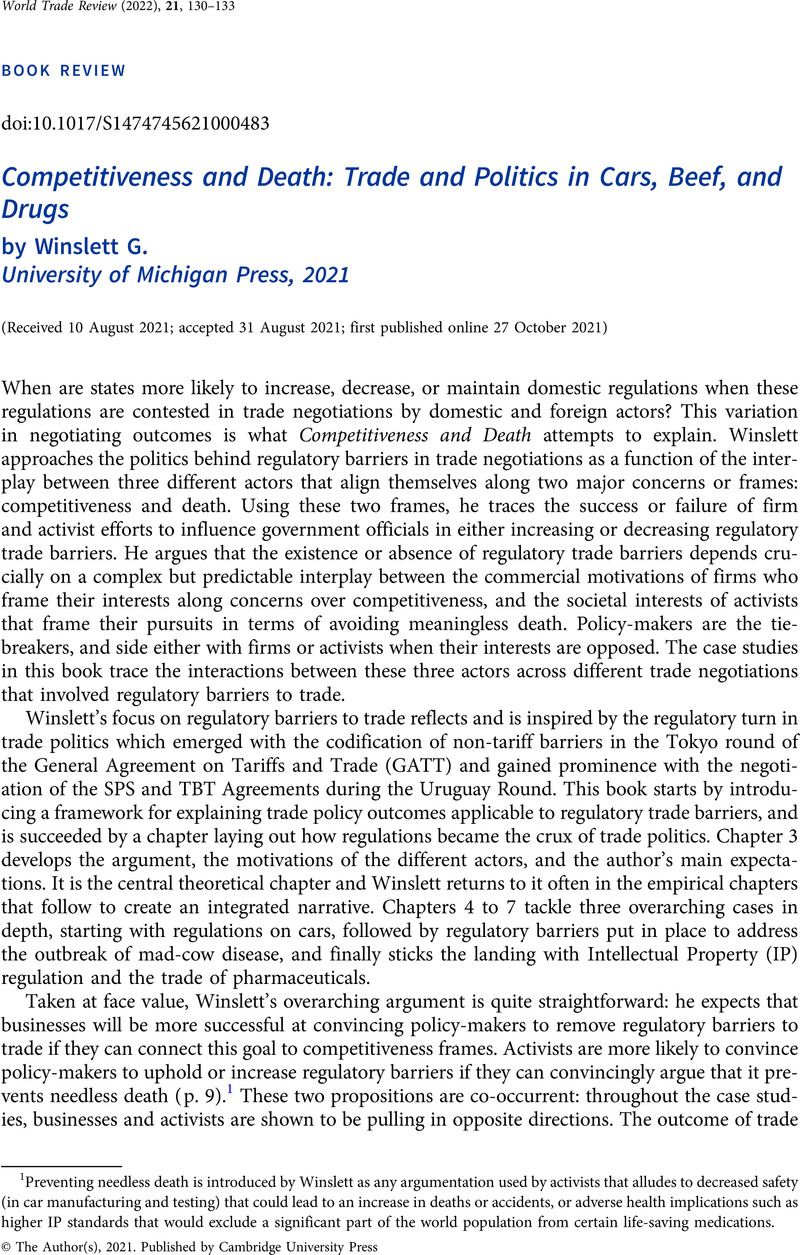No CrossRef data available.
Published online by Cambridge University Press: 27 October 2021

1 Preventing needless death is introduced by Winslett as any argumentation used by activists that alludes to decreased safety (in car manufacturing and testing) that could lead to an increase in deaths or accidents, or adverse health implications such as higher IP standards that would exclude a significant part of the world population from certain life-saving medications.
2 The California effect maintains that by leveraging market access a country or state can induce regulatory upgrading on issues such as environmental standards in trade partners' jurisdictions (Vogel, 1995). The size of the market of the leveraging player is seen as an important independent variable to explain this trading-up dynamic, and much less attention is dedicated to the political processes that precede the eventual regulatory upgrade. This is where Winslett makes his contribution. D. Vogel, (1995) Trading Up: Consumer and Environmental Regulation in a Global Economy. Harvard University Press.